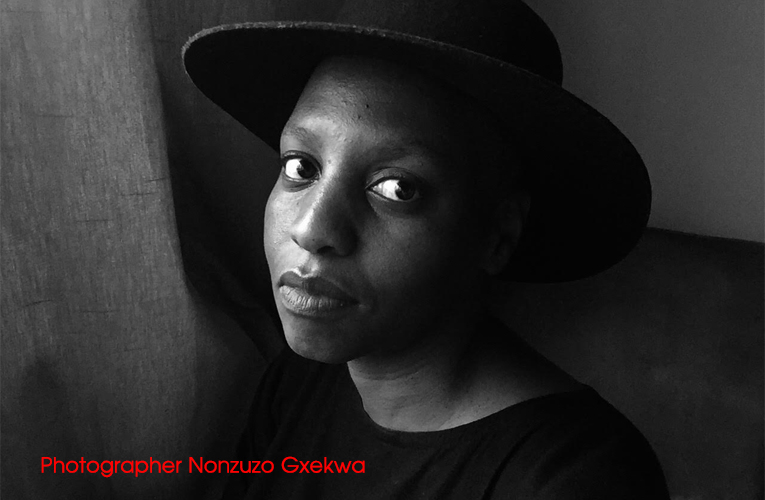Self-taught photographer Nonzuzo Gxekwa explores identity issues through photography
By Edward Tsumele
Often when people come to Maboneng, the gentrified part of Johannesburg inner City, the Eastern side of it, they end up hanging around the busy Fox street at the various eateries and coffee shops that are dotted on this busy street.
These restaurants serve different cuisines from different parts of the African continent, ranging from contemporary Southern African cuisine to food from East Africa, such as Ethiopian food delights.
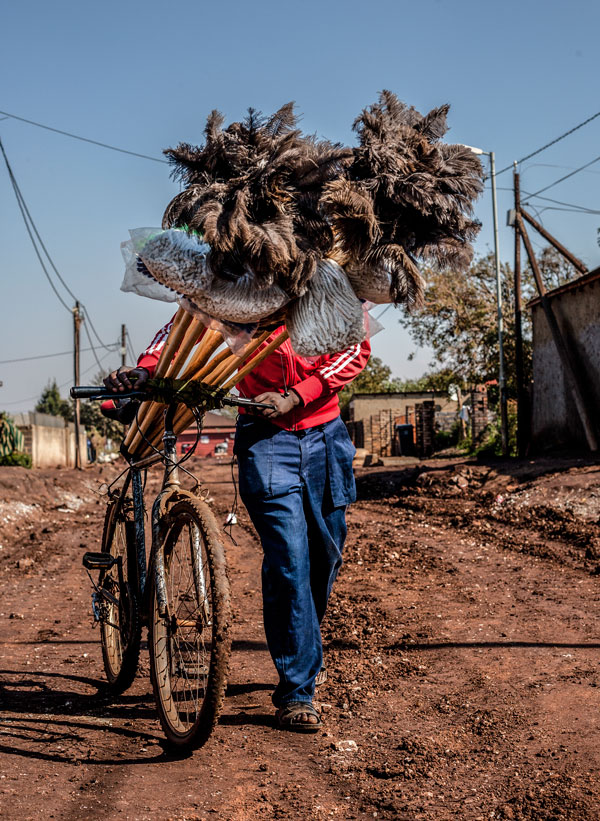
It is here where you will find one of the biggest collection of coffee shops in Johannesburg, serving different flavours of coffees of varying quality. However locals tend to prefer another space for coffee, and that is the Cosmopolitan building which is a street away, off the buzzing Fox street.
Tucked between Albertina Street and Commissioner Street, Cosmopolitan’s architecture is beautiful and eye catching, making this heritage building that used to house a hotel in another of its previous lives, a spectacular sight in Maboneng.
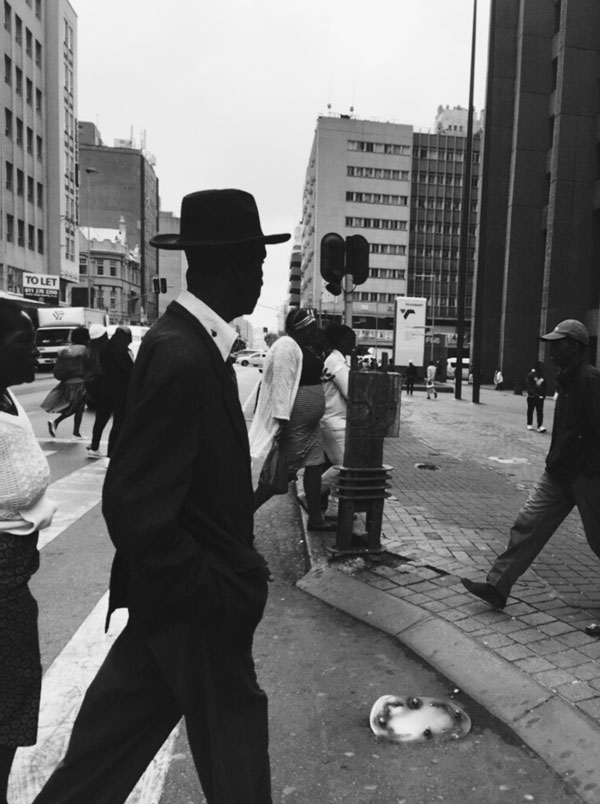
This self contained space that in its current life houses offices, a cannabis shop selling CBD infused products, boutique shops as well as a hair salon and a bookshop, also hosts a quack coffee shop called Home of the Bean. This is quite an intimate space.
Although there is lockdown, its coffee shop the Home of the Bean, is quite an intimate space that is not busy enough to be safe for a business meeting during this time of social distancing due to the coronavirus pandemic, which has disrupted the rhythm of life. You can actually enjoy your coffee while maintaining a safe distance from the other coffee drinkers.
It is here that I had a meeting with Nonzuzo Gxekwa on Monday, July 20. Gxekwa is a self-taught photographer whose work that mainly deals with issues of identity, is now starting to catch the attention of collectors.
This photographer, who hails from Ladysmith in KwaZulu-Natal, is increasingly distinguishing herself as a documenter of Johannesburg’s vibrant street culture, including its colourful mosaic of fashion and exquisite styles.
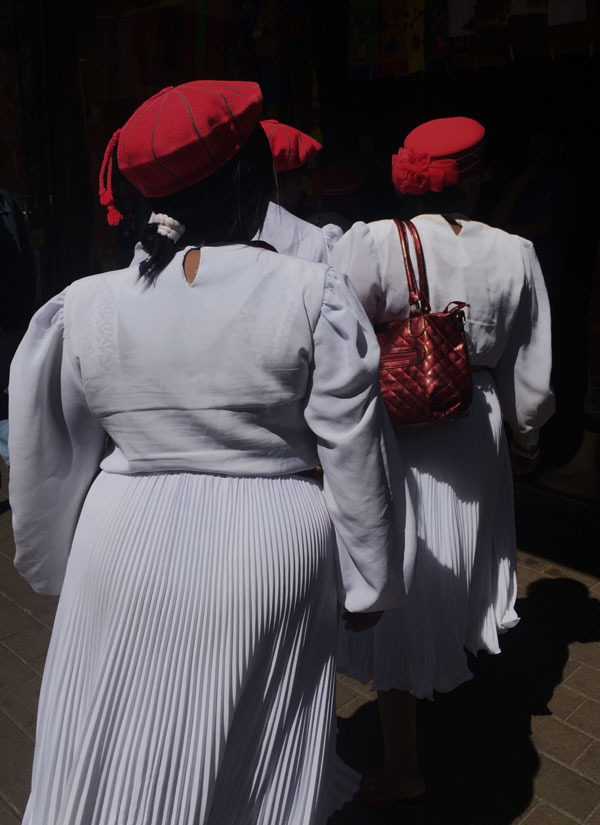
Gxekwa’s lens captures her subjects as they go about their business, whether they are at a taxi rank, waiting for a taxi to take them to work, home or to a date, in a way that tells the complex stories contained in the underbelly of this major metropolis in Africa.
People in Johannesburg are bold and are not shy to express themselves either through their style of dress, through music or poetry. Gxekwa’s body of work however tends to focus on fashion as a way in which Joburgers define their own identity and voice.
The photographer says she is fond of capturing the streets scene in the inner city, because the movement of people is a story of its own.
“I mean these people are strangers in this city, hailing from somewhere else, but are here to try and make something out of their lives on these sometimes rough and mean streets, comutting somewhere looking for work and other opportunities.
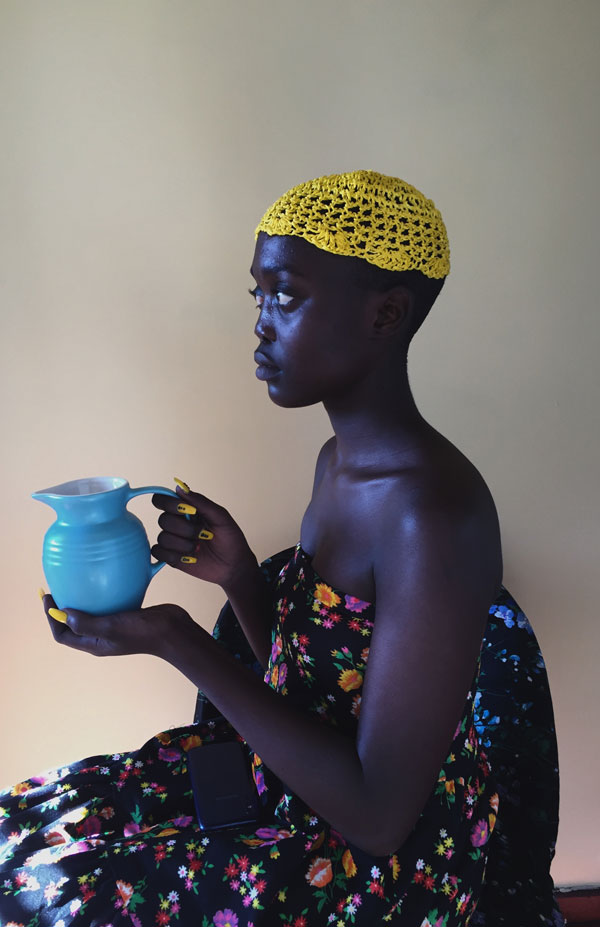

“My photography of these street scenes is about memory and how strangers try to make a better life for themselves in a strange place. In a way, it is also a story about me, as I am also not from here.
“I am mainly a self-taught photographer, who fortunately along the way has met with people who are willing to help me along in my photography journey, either mentoring or helping me with equipment as they see potential in me as a photographer.
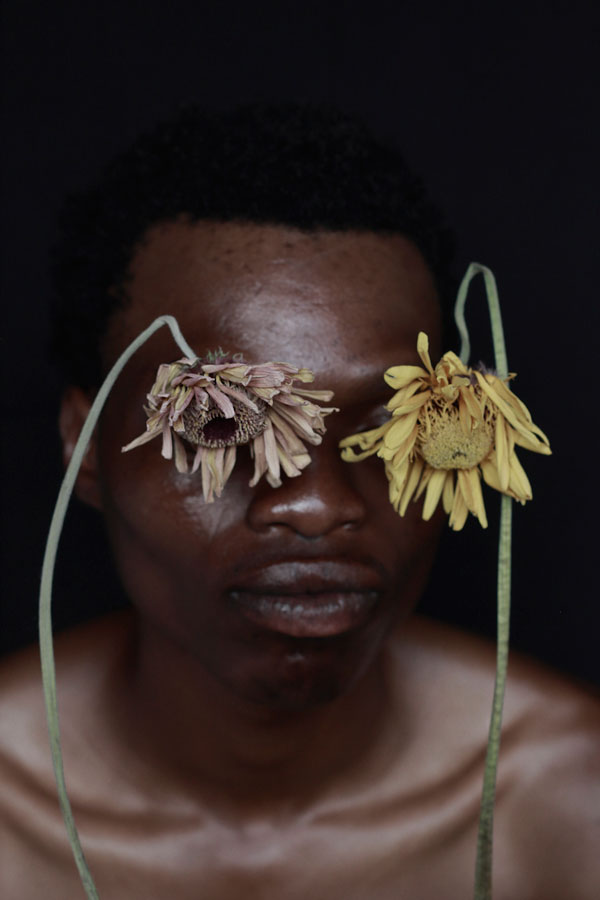
For example, legendary photographer Victor Matom is among photographers that have been helpful in my career, including gifting me with photography equipment. Right now I am receiving mentorship from Michelle Lowdiks who runs Through the Lens, a photography school that is based in Victoria Yards in Bez Valley.
Through this mentorship I am able to learn how to tell a story through my photography, instead of looking at my work just as random pictures that have no narrative. Through this way, I am learning a lot as a photographer and I can feel that I am growing as a photographer. It is quite challenging though because I am not used to working in a structured fashion,” she says.
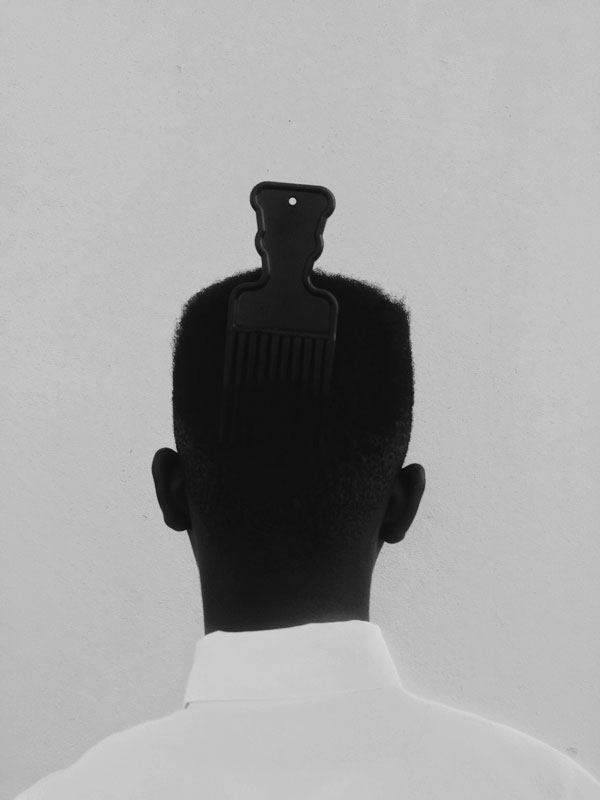
Though her major area of interest in photography is grounded on issues of identity, she has been working on various concepts in recent years in the broad area of identity politics in photography, including a long running series that explores the aesthetics of women’s naked bodies. This series that she has been working on for years now, has not yet been exhibited, but has accumulated quite an extensive body of work, mainly of naked female bodies in their intimate spaces.
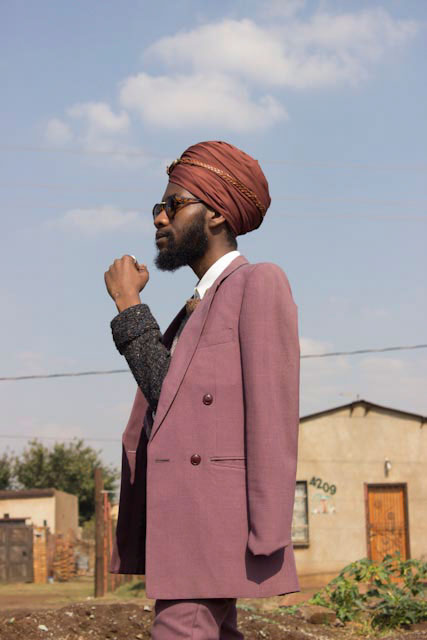
“What this series is trying to do though is to encourage women to be confident in and comfortable about their own bodies, and not ever feel that their bodies are something to be ashamed of as they come in all sizes and shapes. That is the way their bodies are, and there is nothing wrong about all these shapes and sizes,” she says.
She is yet to exhibit this body of work. “Right now I am not sure how the exhibition will look like when I eventually have the opportunity to share this body of work with the public. But I am continuing to build this body of work until it is ready to be shared with the public,” she says.
However her other body of work which also explores the issue of identity through how people dress in the streets as a way of expressing themselves, is now increasingly becoming popular with galleries.
A Cape Town based art Gallery THK, is currently exhibiting this body of work virtually. The exhibition is called Life is Beautiful. Her work can also be seen at the virtual art Fair Latitude, which is currently on, and this year due to COVID-19, it took the form of a virtual route. Latitude was launched in Johannesburg last.
“There are also plans to take some of my work to AKAA (Also Known As Africa) art fair in Paris later this year. I may also be doing something with Through the Lens next year,” she says.
Although Gxekwa has been working as a photographer for quite sometime, it was last year that she was noticed by the industry when she exhibited at Underline, a new art fair driven by independent curators, that was launched at Museum of African Design in Maboneng, and which concurrently ran alongside the Joburg Art Fair. After showing her work there, interest in her work grew as she started getting inquiries from galleries and curators.
However Gxekwa’s work first got public attention in 2015 when she worked with her twin sister Noncedo Gxekwa, who is also a photographer, on a series called Carbon Copy, exploring the dynamics surrounding identical twins.
“It was an idea which came from my sister who was tired of people expecting us to have the same personality traits simply because we are identical twins. The reality is that we are two different people with different interests and personality traits.
For example, my sister is an extrovert and therefore she is out-going, while I am shy. After all, one’s behavior is determined by the people that you hang out with. She has different friends living in Cape Town, while I also have different friends living in Johannesburg,” Gxekwa says.
.Some of Gxekwa’s body of work can be viewed on her instagram account at Nonzuzo Gxekwa.










